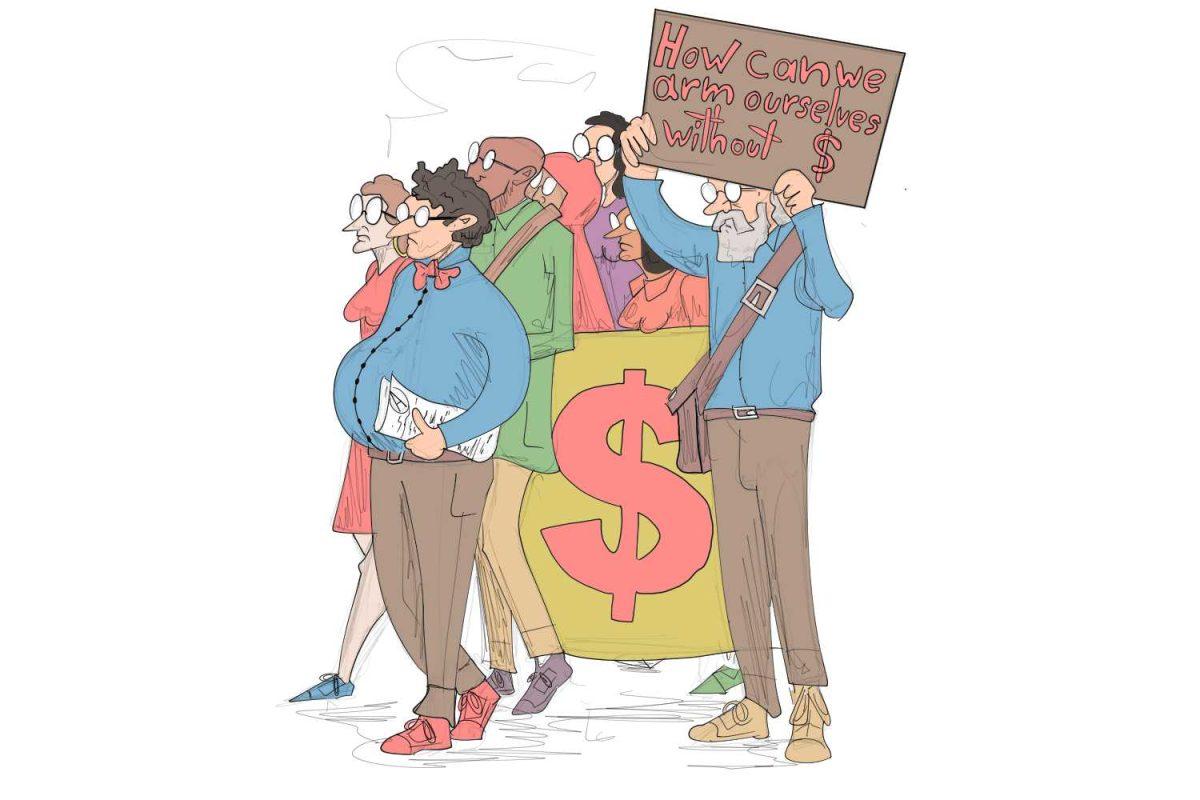Twenty-nine states are providing less total school funding per student than they were in 2008, and in 19 states, local government funding per student also declined over the same period. Teachers in Arizona, Kentucky, Oklahoma and West Virginia have recently led strikes to combat the injustice and negligence being directed toward the future generations of our country. Teachers in other states would be wise to imitate their dissent.
On Feb. 22, West Virginia teachers launched a walkout from their jobs demanding an across-the-board pay raise that would address a common concern among educators: rising health insurance premiums. It only took nine days for Gov. James C. Justice to provide the teachers with exactly what they wanted: a 5 percent pay raise to all teachers and other state employees.
Many teachers are often required to teach classroom sizes of 35 students or more. Teachers recognize the important role local schools play in the lives of children, and it’s time politicians did the same. The movement in West Virginia and other states is unprecedented for a specific reason — teachers don’t leave their classrooms unless they’re infuriated with how they have been treated.
As the son of a mother who’s worked in the public education system of Mississippi, I know this anger is mutually shared among several states. Acts of protest and dissent may be the only kind that resolve it.
A study by the Research and Development Corporation found “a teacher is estimated to have two to three times the impact of any other school factor, including services, facilities, and even leadership.” Despite that fact, teachers’ weekly wages are 23 percent lower than those of other college graduates. The Economic Policy Institute reported, “In 2015, public school teachers’ weekly wages were 17 percent lower than those of comparable workers — compared with just 1.8 percent lower in 1994.”
Oklahoma teachers followed suit and protested the 28 percent drop in education funding over the past decade. Teachers in Oklahoma are ranked third from the bottom in average teacher pay, ahead of only Mississippi and South Dakota.
The teachers being treated the worst are not even the ones deciding to take action. The teachers in Oklahoma ended their strike after nine days unable to receive the proposals they demanded, but the contribution they made to the movement did not go unnoticed. Following the walkouts in Oklahoma, teachers in Arizona and Kentucky chose to advance the movement.
Currently, Mississippi and Louisiana fall within the bottom 10 states in terms of lowest teacher salaries. The average salary for teachers has fallen by nearly 5 percent in Louisiana since the 2013-14 school year, and CheatSheet says it is the only state to experience a wage decrease in the top or bottom 10 states.
Mississippi has yielded only an average raise of 1.32 percent over the past three school years; they’ve remained in the same spot of the rankings for teacher salaries during the same time period.
Teachers in Louisiana and Mississippi should view the ongoing walkouts as motivation to do the same. The Louisiana Department of Education revealed that students finishing teacher preparation programs has dropped 18 percent in Louisiana since the 2010-11 school year. Providing teachers with guns isn’t going to solve such a shortage, but providing them with a commendable raise will.
The walkouts are occurring from state to state because of the Supreme Court decision in San Antonio Independent School District v. Rodriguez ruled that there is no fundamental right to education in the U.S. Constitution. Its decision left the responsibility to the 50 states to entitle children to a quality education within their constitutions. It’s going to require more teachers speaking out to ensure they live up to it.
Seth Nieman is a 22-year-old mass communication senior from McComb, Mississippi.








